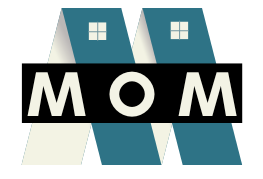What are British Slangs?
British slang is a collection of informal words and phrases that are used in everyday conversation in the United Kingdom. These words and phrases are not part of standard English and can vary by region, class, and age group. They can also change over time, and new slang words and phrases are constantly being introduced.
British slang can include words and phrases that are used to describe people, places, things, or actions. They can be used to express emotions, intentions, or attitudes, and can also be used to add emphasis, humor, or irony to a statement. Some examples of British slang include words like “bloke” (man), “chuffed” (pleased), “gobbledygook” (confusing language), and “loo” (toilet).
Slang can be found in various forms, from spoken and written language, to subcultures and online communities. Some British slang words and phrases are widely used and understood, while others are more specific to certain groups of people.
It is important to note that the use of slang can be seen as informal or casual, and may not be appropriate in certain situations, such as in formal or professional settings.
List of British Slangs used in Daily Life:
- Bloke” – a term used to refer to a man or a guy.
- “Lad” for boys and younger men.
- “Chuffed” – means to be very pleased or satisfied.
- “Gobbledygook” – refers to language that is hard to understand or meaningless.
- “Kip” – a nap or a short sleep.
- “Loo” – a slang term for a toilet.
- “Mate” – a friend or a term of address for someone you know.
- “Naff” – something that is not good or is of poor quality.
- “Pip pip” – a cheerful and old-fashioned way of saying goodbye.
- “Ta” – a shortened version of “thank you.”
- “Willy nilly” – without any planning or forethought.
- “Barmy” – crazy or eccentric
- “Bog standard” – basic or ordinary
- “Bob’s your uncle” – a phrase used to indicate that something is easy or straightforward
- “Cheeky” – impudent or disrespectful in a playful or charming way
- “Collywobbles” – stomach ache or nervous butterflies in stomach
- “Cracking” – great or excellent
- “Dodgy” – suspicious or questionable
- “Faff” – to waste time or make a fuss
- “Gobby” – talkative or outspoken
- “Gander” – a look or a glance
- “Gobsmacked” – extremely surprised or shocked
- “Gutted” – very disappointed or upset
- “Jolly” – happy or cheerful
- “Knackered” – tired or exhausted
- “Miffed” – offended or annoyed
- “Narky” – grumpy or irritable
- “Nipper” – a young child
- “Posh” – elegant or upscale
- “Quid” – a pound (sterling)
- “Wazzock” – an idiot or a fool
- “Cheers” – a casual way of saying “thank you” or “goodbye.”
- “Sorted” – means everything is taken care of or resolved.
- “Ta-ta” – another way of saying “goodbye.”
- “Wotcha” – a casual way of saying “hello.”
- “Bits and bobs” – small items or miscellaneous things.
- “Fancy” – to want or desire something.
- “Lark” – a playful or mischievous activity.
- “Skive” – to avoid work or responsibilities.
- “Toodle-oo” – another way of saying “goodbye.”
- “Budge up” – move over to make room for someone
- “Dishy” – attractive or good-looking
- “Ruddy” – used to intensify the meaning of a word, similar to the use of “bloody”
- “Snog” – to kiss someone romantically
- “Waffle” – to talk excessively or without saying anything important
- “Yob” – an unruly or aggressive person
- “Gutted” – very disappointed or upset
- “Minger” – an unattractive or unappealing person
- “Bender” – a wild and drunken night out
- “Chinwag” – a casual conversation
- “Sod it” – an expression of resignation or acceptance of a difficult situation
- “Bimble” – to move around without a specific destination or purpose.
- “Blinding” – very good or excellent.
- “Cuppa” – a cup of tea.
- “Dosh” – money.
- “Faffing” – wasting time or making a fuss.
- “Gander” – a look or a glance
- “Gobbledygook” – language that is hard to understand or meaningless.
- “Naff” – something that is not good or is of poor quality.
- “Nicker” – a pound (sterling)
- “Nosh” – food
- “Plebs” – people who are not considered to be of high social status
- “Proper” – real or genuine
- “Shag” – to have sexual intercourse
- “Shambles” – a state of disarray or chaos
- “Skint” – broke or having no money
- “Smarmy” – insincerely flattering or excessively polite
- “Tickety-boo” – everything is going well or in good order
- “Totty” – attractive woman
- “Wazzock” – an idiot or a fool
- “Yank” – a derogatory term for an American
How to learn British Slangs
There are several ways to learn British slang:
- Watch British TV shows and movies: This is a great way to learn British slang in context, as you will be able to see and hear it used in conversation.
- Read British books and magazines: British literature and publications can also provide a good source of slang words and phrases.
- Listen to British music: Many British songs use slang words and phrases that can be a fun way to learn.
- Talk to native speakers: One of the best ways to learn slang is to talk to native speakers and ask them to explain the meaning of any slang words or phrases you come across.
- Use online resources: There are many online resources such as websites, blogs, and forums that provide lists and explanations of British slang words and phrases.
- Practice using the slang: As you learn new slang words and phrases, try using them in conversation with native speakers or other learners. This will help you become more comfortable with them and improve your fluency.
- Be aware that slang is constantly evolving: Slang is a living language, so it is important to keep up with the newest slang words, phrases and expressions.
It’s important to note that learning slang is not the same as learning a language, it’s more of a way of understanding colloquialism, the way people talk in their daily life and not in formal settings. Therefore, it’s a good idea to also focus on understanding the basic grammar and vocabulary of the language you’re learning first before diving into slang.










